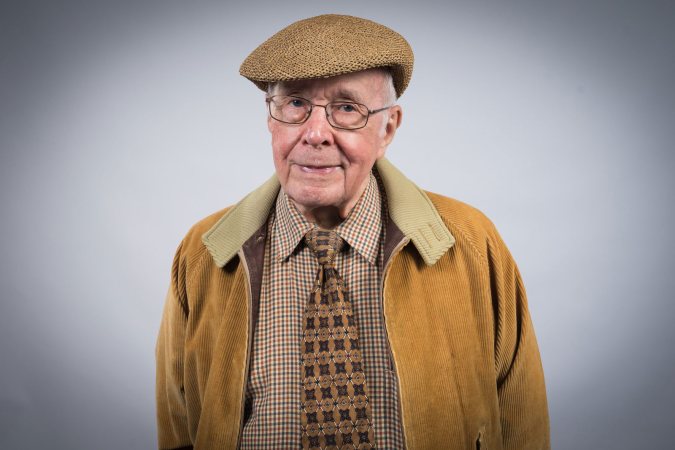
By Doug McPherson
The fork in the road for Edgar "Ted" Coons '51 was clear-cut: college or Hollywood.
But long before he'd reach that fork, starting at age 3, Coons was placed in any role his mom needed. She produced plays and song-and-dance shows in a small, dusty town on the Texhoma border.
"It was her great hope that I would be a movie star," Coons explains.
And when he turned 15, she nudged him farther down that path - hiring a Hollywood agent. But Coons was leaning toward school. "It's a long story, but I rebelled … [and] she said, 'Go into the movies, get famous, make lots of money, and then you can go to college.' I told her that it just doesn't work that way, it will change my life in ways that I don't want."
So, in 1946 he entered the University of Oklahoma as a piano major. His teachers, impressed with his talent also in music composing, recommended he attend one of the annual special summer sessions at Colorado College in 1948. The sessions featured well-known composers, other famous musicians, and modern dance.
He loved his short visit so much he transferred to CC.
"It was extremely fortunate that I did that," Coons says. "It was that opportunity at CC that was to me so transformative about what there was in life to participate in and live up to."
What there was to live up to would reveal itself over the next several decades, but he says it all began with CC's faculty.
He can name them still today and recalls their dedication. One music professor in particular inspired Coons: David Kraehenbuehl, who taught at CC from 1950 to 1953. While at CC, Coons began to ponder the effect form in music had on listeners' feelings, and Kraehenbuehl joined him in studying the topic. The two eventually published pioneering articles on the subject.
After CC, Coons enrolled in 1953 as a graduate student at Yale University, first in music to study under Kraehenbuehl, who had recently taken a position there, but then Coons changed his studies to psychology - due mostly to his interest in music's impact on the brain.
"I needed to know how the nervous system processes information and so they let me take some courses in psychology," Coons says.
He went on, in the research lab of famed psychologist Neal E. Miller, to earn his Ph.D. from Yale in 1964 in systems neuroscience. The next year, he began teaching at New York University, where today he's a professor of psychology and neural science. During his tenure, he's won several awards and taught more than 25,000 students.
He's also kept his interest in the performing arts (expanded to include the visual arts), most recently serving as the executive producer of the 2019 film "Impossible Monsters," a psychological thriller about an academic sleep study that goes awry.
When Coons reflects on his days at CC some 70 years ago, he's quick to connect the foundation CC set for him and the success he's enjoyed. That's one of the reasons he's decided to give back to school that gave so much to him. Earlier this year, he announced The Edgar E. Coons Jr. '51 Director of Academic Engagement in the Arts Fund. The gift will support events at the Colorado Springs Fine Arts Center at Colorado College, fellowships, workshops for faculty, activities of the UnBlocked Gallery, student exhibitions, music and dance performances, public art projects, and conferences.
Anyone may contribute to the fund, which will become available upon Coons' passing.
Coons' advice to today's CC students is to not get swept away by all of the information available, but rather, focus on the "nowness" of an experience and process what it's telling you to discover hidden riches of wisdom.
"Actually, CC's Block Plan - which didn't yet exist when I was a student there - may support that advice," Coons says.





